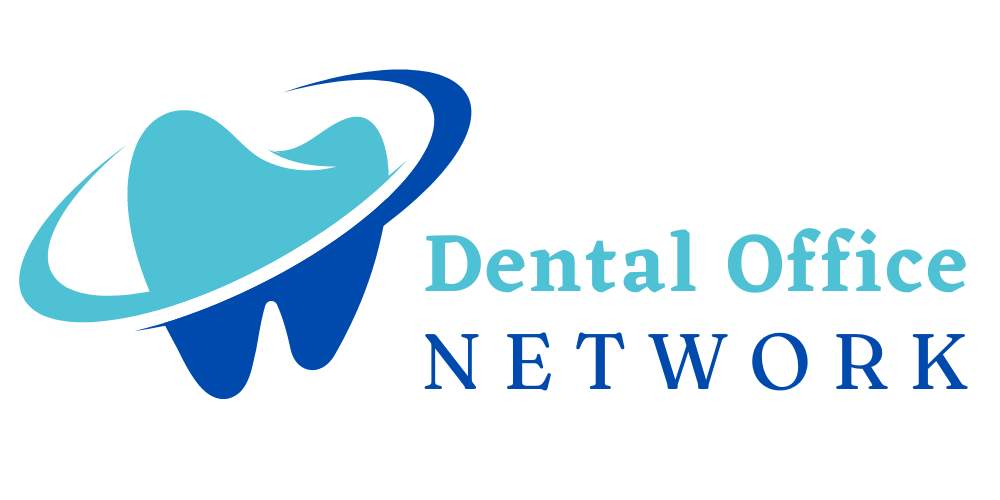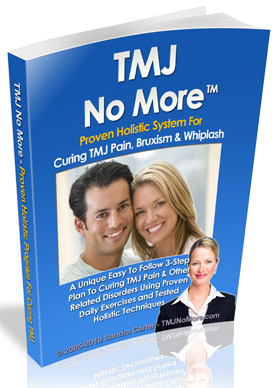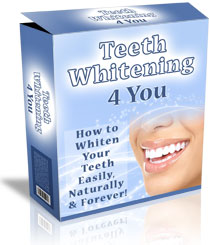Understanding Dental Urgent Care: When You Need It and What to Expect
Dental emergencies can happen at any time, and when they do, it’s important to know where to turn. That’s where dental urgent care comes in. Whether you’re dealing with a sudden toothache, a knocked-out tooth, or another urgent dental issue, a dental urgent care center can provide the care you need.
In this article, we’ll cover everything you need to know about dental urgent care, including when to seek it out and what to expect when you get there.
What Is Dental Urgent Care?
Dental urgent care is a type of dental practice that specializes in providing emergency dental care. These facilities are equipped to handle a wide range of urgent dental issues, from toothaches and broken teeth to severe infections and injuries.
Unlike traditional dental practices, which typically require you to make an appointment in advance, dental urgent care centers are designed to provide immediate care to patients who need it. Many dental urgent care facilities offer extended hours, including evenings and weekends, to ensure that patients can receive care when they need it most.
When Should You Seek Out Dental Urgent Care?
If you’re experiencing a dental emergency, it’s important to seek out care as soon as possible. Some common dental emergencies include:
- Toothaches: If you’re experiencing severe pain or swelling in your tooth or gums, it could be a sign of an infection or other dental issue that requires immediate attention.
- Knocked-out tooth: If you’ve lost a tooth due to injury or trauma, it’s important to seek out care right away. In some cases, a knocked-out tooth can be saved if it’s re-implanted within a certain period of time.
- Broken or chipped teeth: If you’ve chipped or broken a tooth, it’s important to seek out care as soon as possible to prevent further damage or infection.
- Severe bleeding or trauma: If you’re experiencing severe bleeding or trauma to your mouth or teeth, it’s important to seek out care right away.
In general, if you’re experiencing severe pain, swelling, bleeding, or trauma to your mouth or teeth, it’s best to seek out dental urgent care as soon as possible.
What to Expect at a Dental Urgent Care Center
If you’ve never been to a dental urgent care center before, you may be wondering what to expect. Here’s what you can expect when you visit a dental urgent care center:
- Immediate care: Unlike traditional dental practices, which may require you to make an appointment in advance, dental urgent care centers are designed to provide immediate care to patients who need it. You’ll typically be seen by a dentist or dental professional right away.
- Comprehensive care: Dental urgent care centers are equipped to handle a wide range of dental emergencies, from toothaches and broken teeth to severe infections and injuries. You can expect to receive comprehensive care for your dental issue.
- Experienced professionals: Dental urgent care centers are staffed by experienced dental professionals who are trained to handle emergency situations. You can expect to receive high-quality care from a team of professionals who are dedicated to helping you feel better.
- State-of-the-art equipment: Dental urgent care centers are equipped with state-of-the-art dental equipment and technology, including digital X-rays and advanced dental tools. This ensures that you receive the best possible care for your dental issue.
- Convenient hours: Many dental urgent care centers offer extended hours, including evenings and weekends, to ensure that patients can receive care when they need it most. This means that you don’t have to wait until regular business hours to receive care for your dental issue.
The Importance of Dental Urgent Care
Dental emergencies can occur at any time, leaving patients in need of immediate attention. From severe toothaches to broken or knocked-out teeth, dental emergencies can cause pain, discomfort, and even permanent damage if left untreated. In these situations, seeking urgent dental care is essential to prevent further complications and maintain optimal oral health. In this article, we will explore the importance of dental urgent care and the services provided by dental urgent care clinics.
The Importance of Dental Urgent Cares
Dental emergencies can occur at any time, leaving patients in need of immediate attention. From severe toothaches to broken or knocked-out teeth, dental emergencies can cause pain, discomfort, and even permanent damage if left untreated. In these situations, seeking urgent dental care is essential to prevent further complications and maintain optimal oral health. In this article, we will explore the importance of dental urgent care and the services provided by dental urgent care clinics.
Dental emergencies can be painful and distressing, and they often require immediate attention to prevent further complications. Seeking dental urgent care is crucial for several reasons:
Prompt Treatment: Dental urgent care clinics provide prompt treatment for dental emergencies, which can help alleviate pain and discomfort and prevent further damage to teeth and gums. Delaying treatment can result in more severe complications and longer recovery times.
Preventing Further Damage: Dental urgent care can help prevent further damage to teeth and gums by addressing the underlying issue causing the emergency. For example, a broken tooth may require immediate treatment to prevent infection or further damage.
Saving Teeth: In some cases, dental urgent care can help save a tooth that has been knocked out or broken. Prompt treatment can increase the chances of saving the tooth and reducing the need for more extensive dental work.
Maintaining Oral Health: Dental emergencies can affect oral health, and seeking prompt treatment can help maintain optimal oral health. This can prevent more severe dental issues from developing and require more extensive treatment.
Dental Urgent Care Services
Dental urgent care clinics provide a wide range of services to address dental emergencies. These services include:
Toothaches: Dental urgent care clinics can provide immediate relief for severe toothaches by addressing the underlying issue causing the pain. This may include treating tooth decay, repairing a cracked or chipped tooth, or extracting a severely damaged tooth.
Broken or Knocked-Out Teeth: Dental urgent care clinics can provide emergency treatment for broken or knocked-out teeth. This may include repairing the tooth, re-implanting the tooth, or extracting the tooth if it cannot be saved.
Bleeding Gums: Bleeding gums can be a sign of gum disease or other oral health issues. Dental urgent care clinics can provide treatment to address the underlying issue and prevent further complications.
Jaw Pain: Jaw pain can be caused by a range of issues, including dental emergencies. Dental urgent care clinics can provide treatment to alleviate pain and address the underlying issue causing the pain.
Finding Dental Urgent Care
If you experience a dental emergency, it is essential to seek urgent care as soon as possible. There are several ways to find dental urgent care clinics in your area:
Online Search: Conduct an online search for dental urgent care clinics in your area. This can provide you with a list of clinics, their hours of operation, and contact information. Search The Dental Office Network
Ask Your Dentist: Your regular dentist may offer dental urgent care services or be able to recommend a clinic in your area.
Check with Your Insurance Provider: Your dental insurance provider may have a list of dental urgent care clinics in your area that are covered under your insurance plan.
Ask Family and Friends: Ask family and friends if they know of any dental urgent care clinics in your area that they have used or heard of. They may be able to provide recommendations and first-hand experiences.
Helpful Tips for Dealing with Dental Emergencies
While dental emergencies can be stressful and painful, there are several steps you can take to help manage the situation before seeking dental urgent care:
Toothache: Rinse your mouth with warm water and use dental floss to remove any food particles that may be causing the pain. Apply a cold compress to the outside of the mouth to alleviate swelling and pain.
Broken or Knocked-Out Tooth: Rinse the mouth with warm water and apply a cold compress to the outside of the mouth to alleviate swelling and pain. If possible, locate the broken or knocked-out tooth and bring it with you to the dental urgent care clinic.
Bleeding Gums: Rinse the mouth with warm water and apply pressure to the area with a clean piece of gauze or cloth. If the bleeding does not stop after several minutes, seek dental urgent care.
Jaw Pain: Apply a cold compress to the outside of the mouth to alleviate swelling and pain. Avoid opening the mouth too wide and stick to soft foods until you can seek dental urgent care.
Preventing Dental Emergencies
While dental emergencies can occur unexpectedly, there are several steps you can take to help prevent them from happening:
Practice Good Oral Hygiene: Brushing and flossing regularly can help prevent tooth decay and gum disease, which are common causes of dental emergencies.
Wear a Mouthguard: If you participate in contact sports, wearing a mouthguard can help protect your teeth and gums from injury.
Avoid Chewing Hard Objects: Chewing on hard objects such as ice, popcorn kernels, or pens can cause teeth to chip or break, leading to a dental emergency.
Attend Regular Dental Check-Ups: Regular dental check-ups can help identify potential dental issues before they become emergencies.
Dental emergencies can be painful and distressing, but seeking dental urgent care can provide prompt treatment and prevent further complications. Dental urgent care clinics offer a wide range of services to address dental emergencies, including toothaches, broken or knocked-out teeth, bleeding gums, and jaw pain. If you experience a dental emergency, it is essential to seek urgent care as soon as possible. Taking steps to prevent dental emergencies, such as practicing good oral hygiene, wearing a mouthguard, and avoiding chewing hard objects, can help maintain optimal oral health and prevent potential emergencies.












